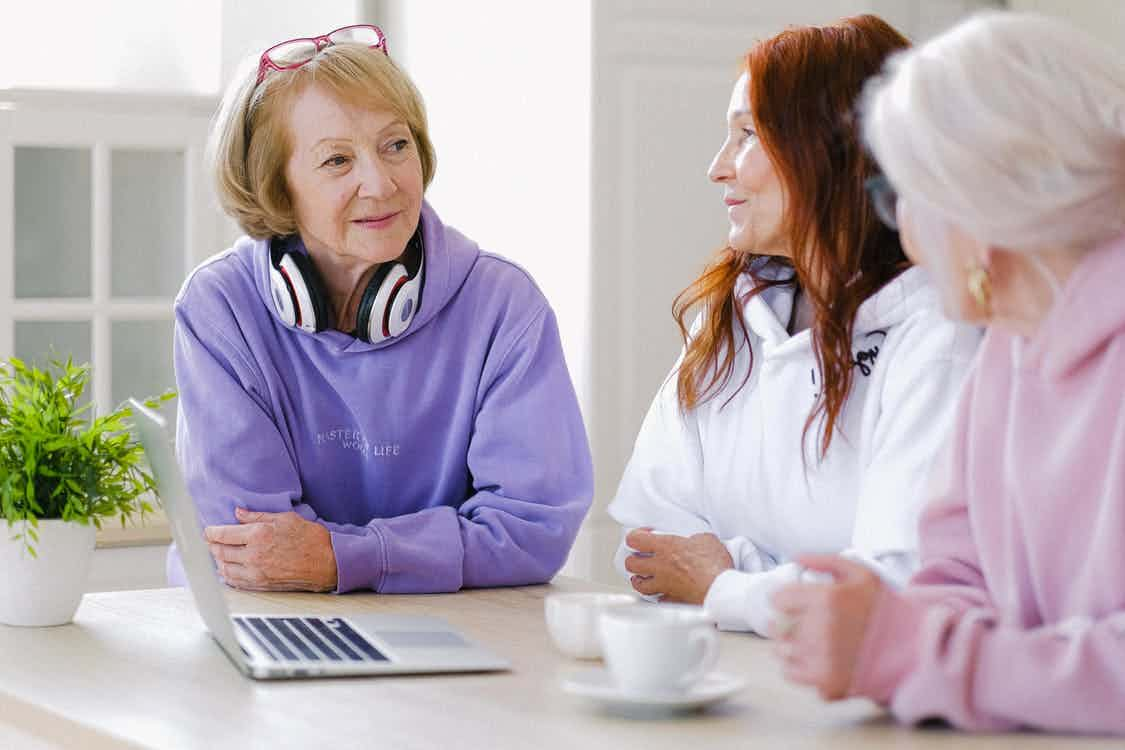Tech is a young person’s game, at least that's what we hear all the time. Bill Gates headed up Microsoft when he was 23, Mark Zuckerberg was 19 and still at university when he began Facebook. Teens and twenty-somethings speak another language of TikToks, e-wallets, and influencers.
With all the focus on youthful energy, is there space for technology to better cater to older people? Much tech may not have been designed with them in mind, but those reaching or enjoying retirement are still keenly adopting different tech products.
Whether older folk are adopting technology out of want or necessity is an interesting question. To try and get to the bottom of these questions, we're going to look into:
- The issues around accessibility and technology
- Reasons why older people are put off using technology
- What compels older generations to start to consume technology
Why do older people sometimes struggle with technology?
There are challenges to using technology that many older people face. You’d be forgiven for thinking those in their golden years don’t use tech because of accessibility issues. There are lots of adapted devices that focus on issues like:
- Larger buttons, such as Emporia mobile phones
- A simple system to navigate around like the Breezie operating system
- Voice assistants like Siri and Google Assistant that help those with sight issues
Whilst there can be issues with shaky taps on a touchscreen being mistaken for a swipe, it's not generally the most significant factor holding people back. Academics Bran Knowles and Vicki Hanson said in a 2018 study, "the usability and accessibility of [technology], despite being the focus of most research, are not the most salient barriers to adoption.”
If the shiny devices and fiddly bits of kit aren't keeping tech from older people, what is?
Why aren't older people using technology?
When I asked my 69-year-old aunt what held her back from using more technology, she told me she was scared of using things like online banking because she didn’t understand it. The conversation was through WhatsApp, so she’s not a complete technophobe.
Age UK gets this issue and runs courses to help older people build up the confidence to use the internet. They have Digital Drop-ins and run IT training courses across the country. When technology is framed as something so geared towards Millennials and Gen Z, is it any wonder those reaching retirement are hesitant to get involved?
Technology also doesn’t meet the needs of older people. Some of the most common things people do on the internet, like using social media, messaging, or watching videos aren’t as appealing to people who still pop over to see their friends and have a perfectly good TV in the living room.
Having a clear and necessary use is an essential driver of technology adoption for older folks.
Why do older people use technology?
When needs must, tech gets used. Back to my auntie, she said she bought a tablet and learned the basics to get her disabled badge, passport, and drivers license sorted. Being able to stay in touch with friends and family is a common reason for using tech like Facebook and Skype.
The University of the 3rd Age, or u3a, is a collection of local organisations that allow people who have left work behind them to get together, learn, and have fun. As the Covid-19 pandemic stopped groups from gathering, classes and meetings moved online.
“Since last August we have managed to get many of our interest groups running through Zoom. These are proving to grow in popularity. We have found the key to keeping people's enthusiasm is to keep in regular contact with them. Thank goodness for digital media," said Angela Pearson, a member of Duns & District u3a.
Are older people being included in technology just because of necessity? Far from it. Give an older person a reason to engage in technology, and they do. A quick look at u3a groups across the UK and you can find meetings such as:
- Computer advice
- Technology users
- Film making
- iPainting
- Digital photography
- Netflix
All of this and I don’t even need to start talking about Health Tech like Zoom calls with doctors and ordering repeat prescriptions online. You want to learn or to pursue hobbies doesn't end when you get your bus pass, and as long as the internet, phones, and computers can facilitate that then technology is as open to older people as anyone else
Older people choose carefully how to include themselves in technology. My stepdad can’t even send a WhatsApp, but he learned how to use Sky Q quickly enough when John Wayne was on whilst he was visiting his sister. An older person is likely to embrace anything that has real value to them, big buttons or not.
Are technology companies a young person’s game?
I started this article talking about the youth of Gates and Zuckerberg when they started out. It's a common perception that founding a technology-based company is only for young people.
Research in 2017 by Joshua Gans found that a successful Silicon Valley entrepreneur's average age is a decidedly middle-aged 47 years old. Even with the idea of kids in their twenties making millions in front of their computer screen, the most innovative tech space on the planet is still the most success from people twice their age.
When it comes to building a company and making money from tech, you certainly don’t need youth on your side to be included in the market either.
Does technology exclude older people?
Maybe the better question here is why do older people exclude themselves from technology? Older folk don’t need adaptations to tech to make them accessible just because of the extra years they’ve accumulated – although these are super useful to disabled people of any age.
Speaking to people, they’re not scared of shiny-slidey-new-things, it’s knowing what to do with the devices. Once there's the confidence with the hardware and software, retirees will find ways to keep themselves happy. It's just not the same things as young people enjoy.









